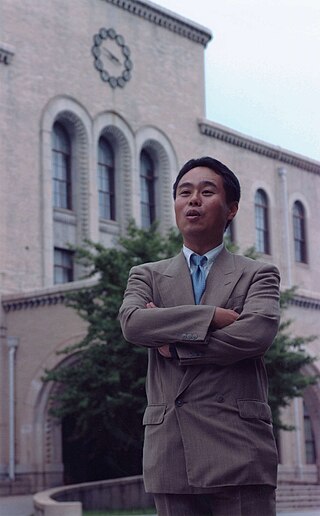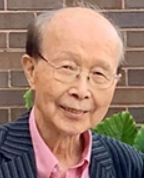The Subcommittee on International Organizations of the Committee on International Relations was a committee of the U.S. House of Representatives which met in 1976 and 1977 and conducted an investigation into the "Koreagate" scandal. It was chaired by Representative Donald M. Fraser of Minnesota. The committee's 447-page report, made public on November 29, 1977, reported on plans by the National Intelligence Service (KCIA) to manipulate American institutions to the advantage of South Korean government policies, overtly and covertly.
Korean studies is an academic discipline that focuses on the study of Korea, which includes the Republic of Korea, the Democratic People's Republic of Korea, and diasporic Korean populations. Areas commonly included under this rubric include Korean history, Korean culture, Korean literature, Korean art, Korean music, Korean language and linguistics, Korean sociology and anthropology, Korean politics, Korean economics, Korean folklore, Korean ethnomusicology and increasingly study of Korean popular culture. It may be compared to other area studies disciplines, such as American studies and Chinese studies. Korean studies is sometimes included within a broader regional area of focus including "East Asian studies".
The Association for Asian Studies (AAS) is a scholarly, non-political and non-profit professional association focusing on Asia and the study of Asia. It is based in Ann Arbor, Michigan, United States.
James B. Palais was an American historian, Koreanist, and writer. He served as Professor of Korean History at the University of Washington; and he was a key figure in establishing Korean studies in the United States.
Nobi were members of the slave class during the Korean dynasties of Goryeo and Joseon. Legally, they held the lowest rank in medieval Korean society. Like the slaves, serfs, and indentured servants of the Western Hemisphere, nobi were considered property or chattel, and could be bought, sold, or gifted.

Kan Kimura is a Japanese scholar of political studies and area studies. He is now a professor at Graduate School of International Cooperation Studies, Kobe University, Japan.
The Order of Cultural Merit (Korean: 문화훈장) is one of South Korea's orders of merit. It is awarded by the President of South Korea for "outstanding meritorious services in the fields of culture and art in the interest of promoting the national culture and national development."

The Journal of Korean Studies is a biannual peer-reviewed academic journal covering Korean studies. It was established in 1969. The original series had two issues numbered Volume 1 (1969) and 2 (1971) that were edited by David Messler. A decade later, James Palais edited and published volumes 1–5 of the second series (1979–1987). Volumes 6–8 (1988–1992) were edited by Mike Robinson.
Donald Kirk is a veteran correspondent and author on conflict and crisis from Southeast Asia to the Middle East to Northeast Asia. Kirk has covered wars from Vietnam to Iraq, focusing on political, diplomatic, economic and social as well as military issues. He is also known for his reporting on North Korea, including the nuclear crisis, human rights and payoffs from South to North Korea preceding the June 2000 inter-Korean summit.[1]
Carter J. Eckert is an American academic and the Yoon Se Young Professor of Korean History at Harvard University.
The John Whitney Hall Book Prize has been awarded annually since 1994 by the Association for Asian Studies (AAS). Pioneer Japanese studies scholar John Whitney Hall is commemorated in the name of this prize.
Martina Deuchler is a Swiss academic and author. She was a professor of Korean studies at the SOAS University of London from 1991 to 2001.
Sem Andre Claudine Vermeersch is a Belgian academician, editor, author, administrator and professor of Buddhism at Seoul National University.

Chong-Sik Lee was a Korean American political scientist specializing in East Asian studies.
JaHyun Kim Haboush was a Korean American scholar of Korean history and literature. Haboush was the King Sejong Professor of Korean Studies at Columbia University when she died in New York City in 2011.
Joseph Levenson Book Prize is awarded each year in memory of Joseph R. Levenson by the Association for Asian Studies to two English-language books, one whose main focus is on China before 1900 and the other for works on post-1900 China. According to the association, the prize criterion is whether the book is "the greatest contribution to increasing understanding of the history, culture, society, politics, or economy of China." While the association does not limit the discipline or period of the work, it won't consider anthologies, edited works, and pamphlets. Based on the scholarly interests of Levenson, the association gives special consideration to books that "promote the relevance of scholarship on China to the wider world of intellectual discourse."
Korean units of measurement, called cheokgwan-beop or cheokgeun-beop in Korean, is the traditional system of measurement used by the people of the Korean peninsula. It is largely based on the Chinese system, with influence from Japanese standards imposed following its annexation of the Korean Empire in 1910. Both North and South Korea currently employ the metric system. Since 2007, South Korea has criminalized the use of Korean units in commercial contexts, but informal use continues, especially of the pyeong as a measure of residential and commercial floorspace. North Korea continues to use the traditional units, although their standards are now derived from metric conversions.
The Patrick D. Hanan Book Prize for Translation is given biennially to an outstanding English translation of a significant work in any genre originally written in Chinese or an Inner Asian Language, from any time period.
Nancy Abelmann was an American anthropologist and Harry E. Preble Professor of anthropology, Asian American studies, and East Asian languages and cultures at the University of Illinois at Urbana-Champaign. where she'd also served as Associate Vice Chancellor for Research from 2009 to 2016, and as Director of the Center for East Asian and Pacific Studies from 2005 to 2008.

Jie-Hyun Lim is a South Korean historian, writer, and "memory activist." He is a full professor of transnational history and the director of the Critical Global Studies Institute at Sogang University, Seoul, who conceptualized paradigms of "Mass Dictatorship" and "Victimhood Nationalism." Since Lim founded the Research Institute of Comparative History and Culture in 2004, he has carried out a series of international projects, including the "East Asian History Forum for Criticism and Solidarity" and the "Flying University of Transnational Humanities."